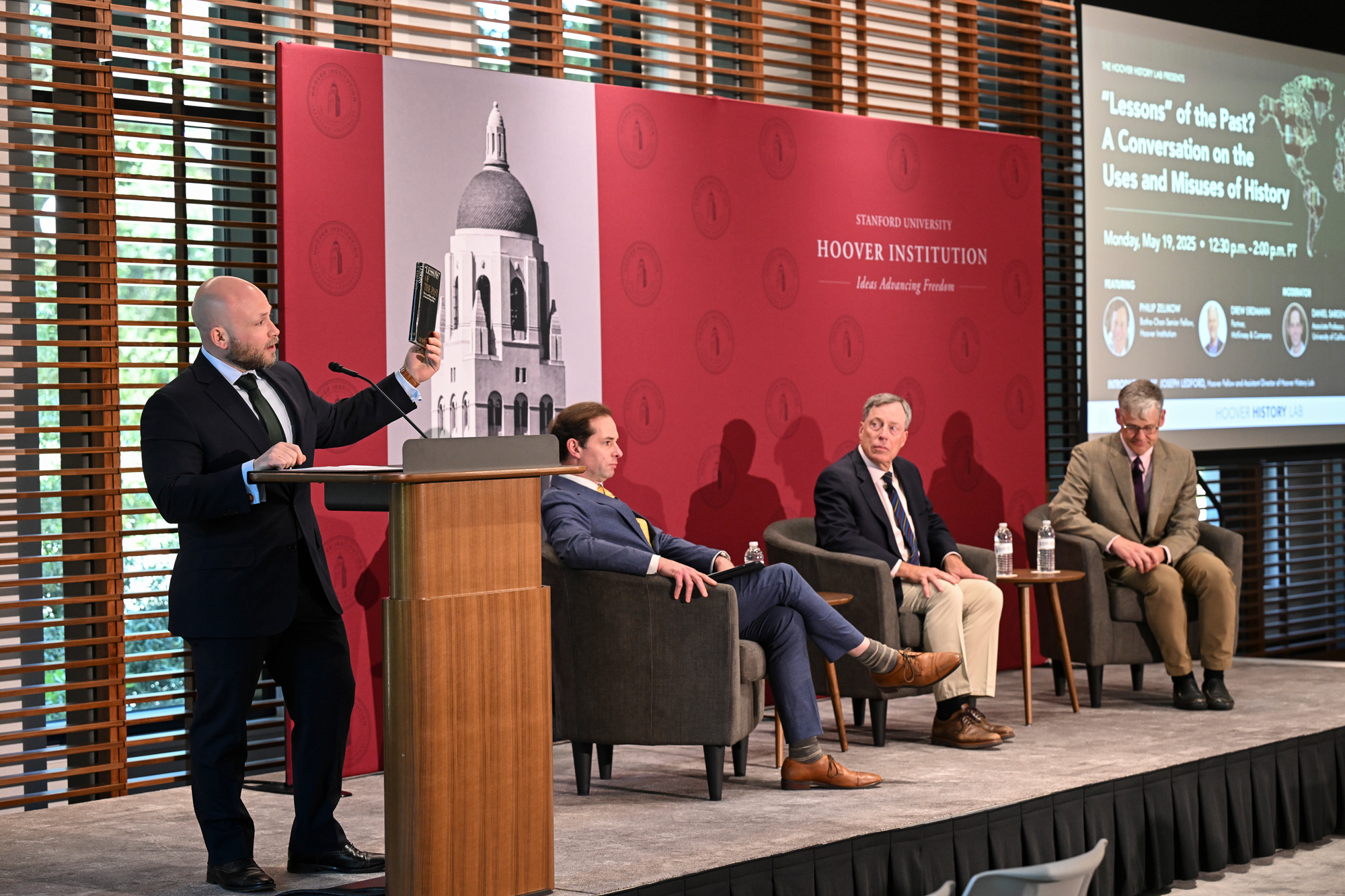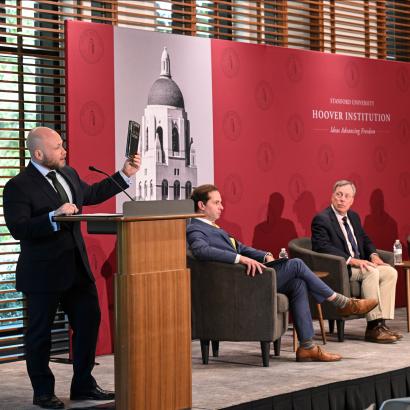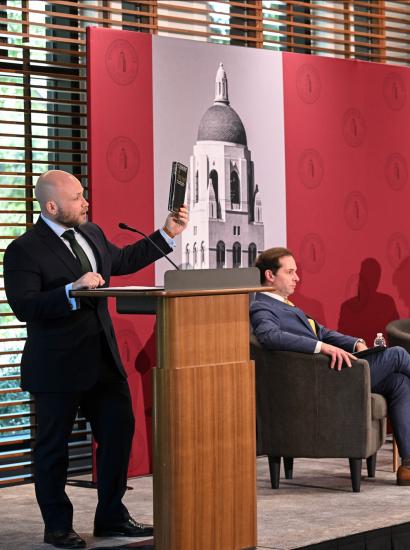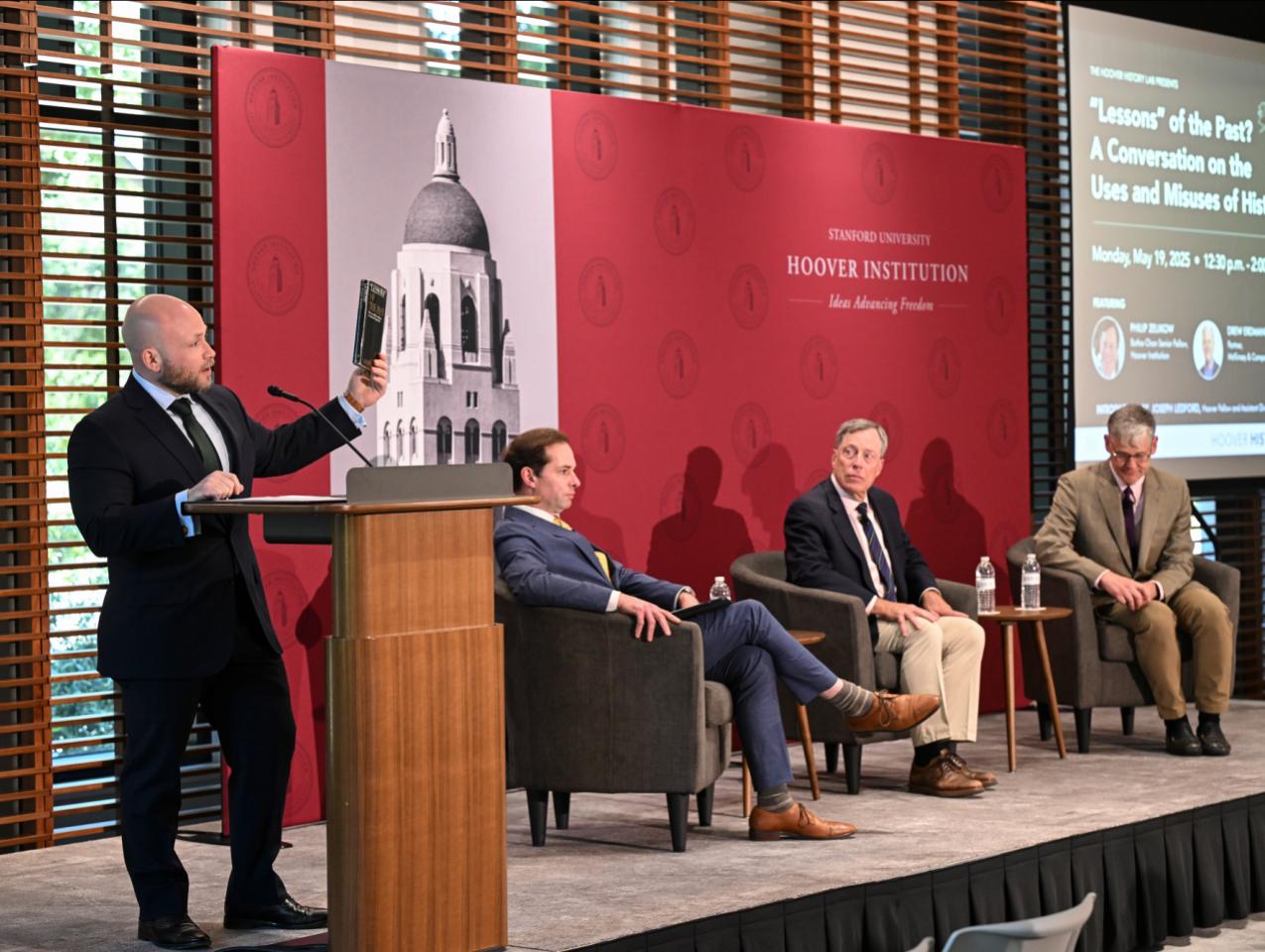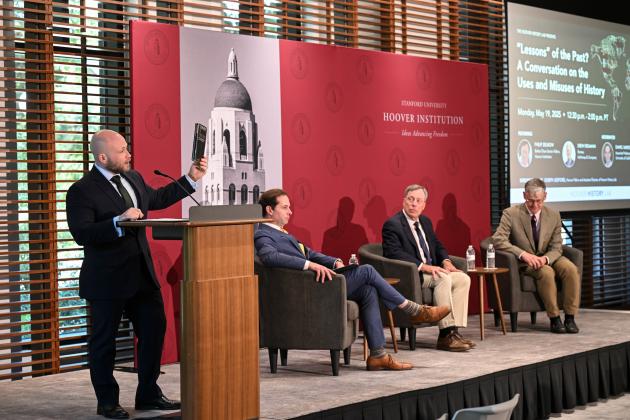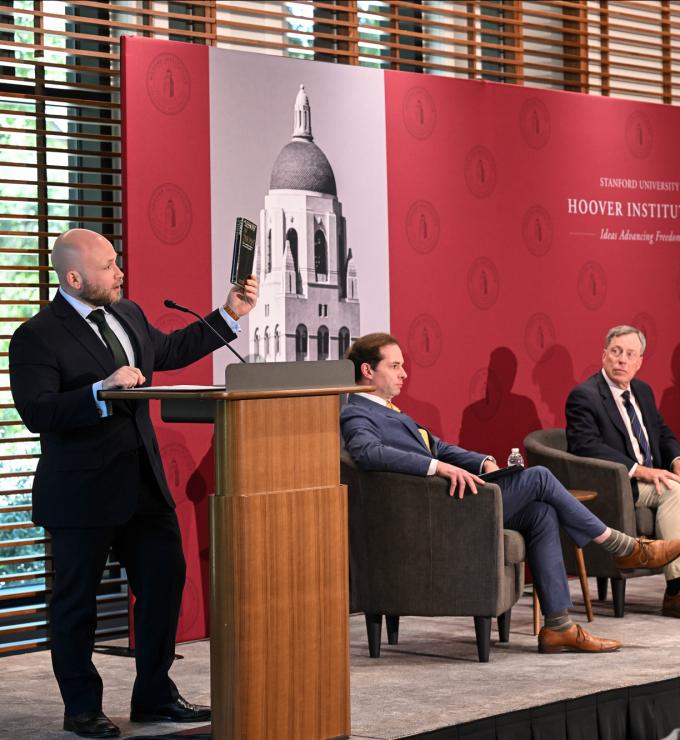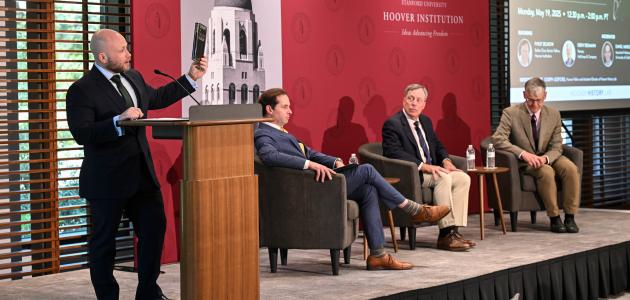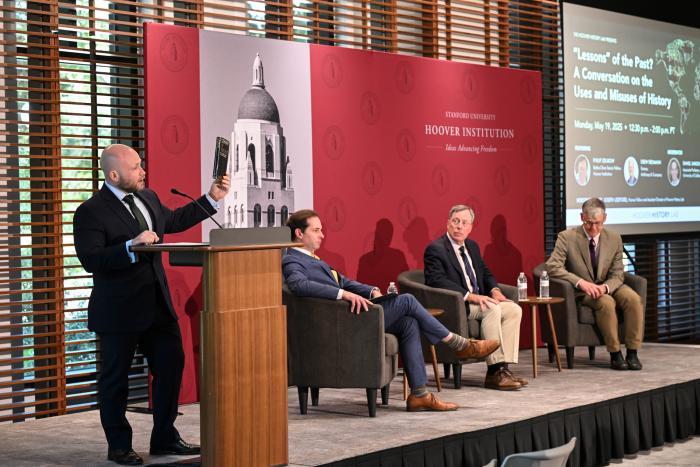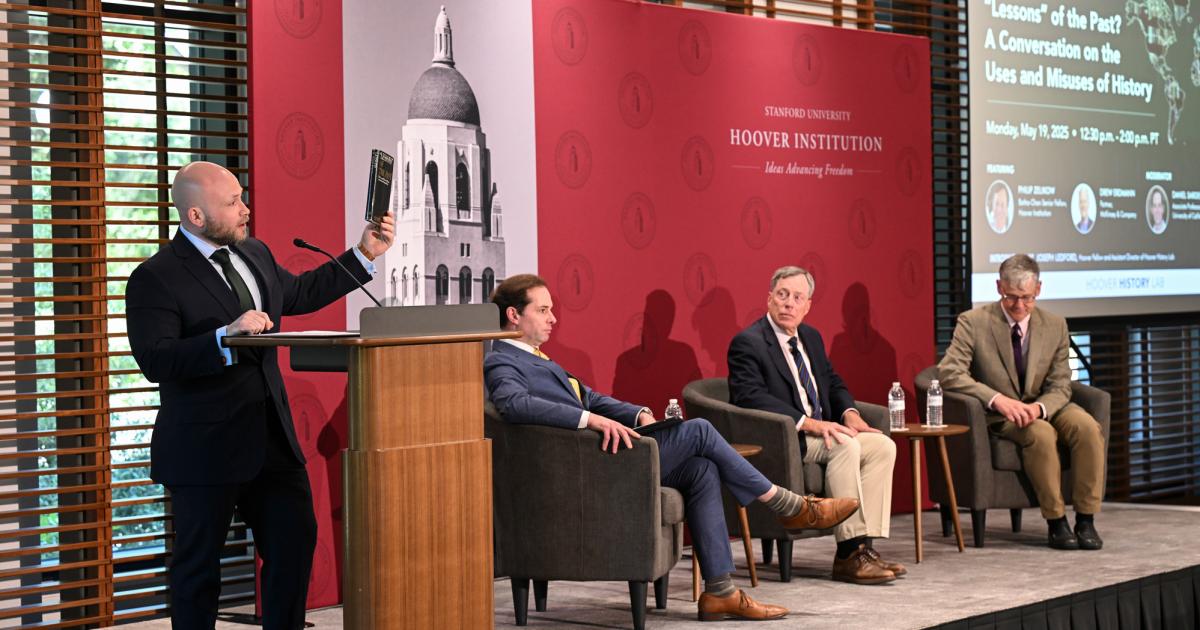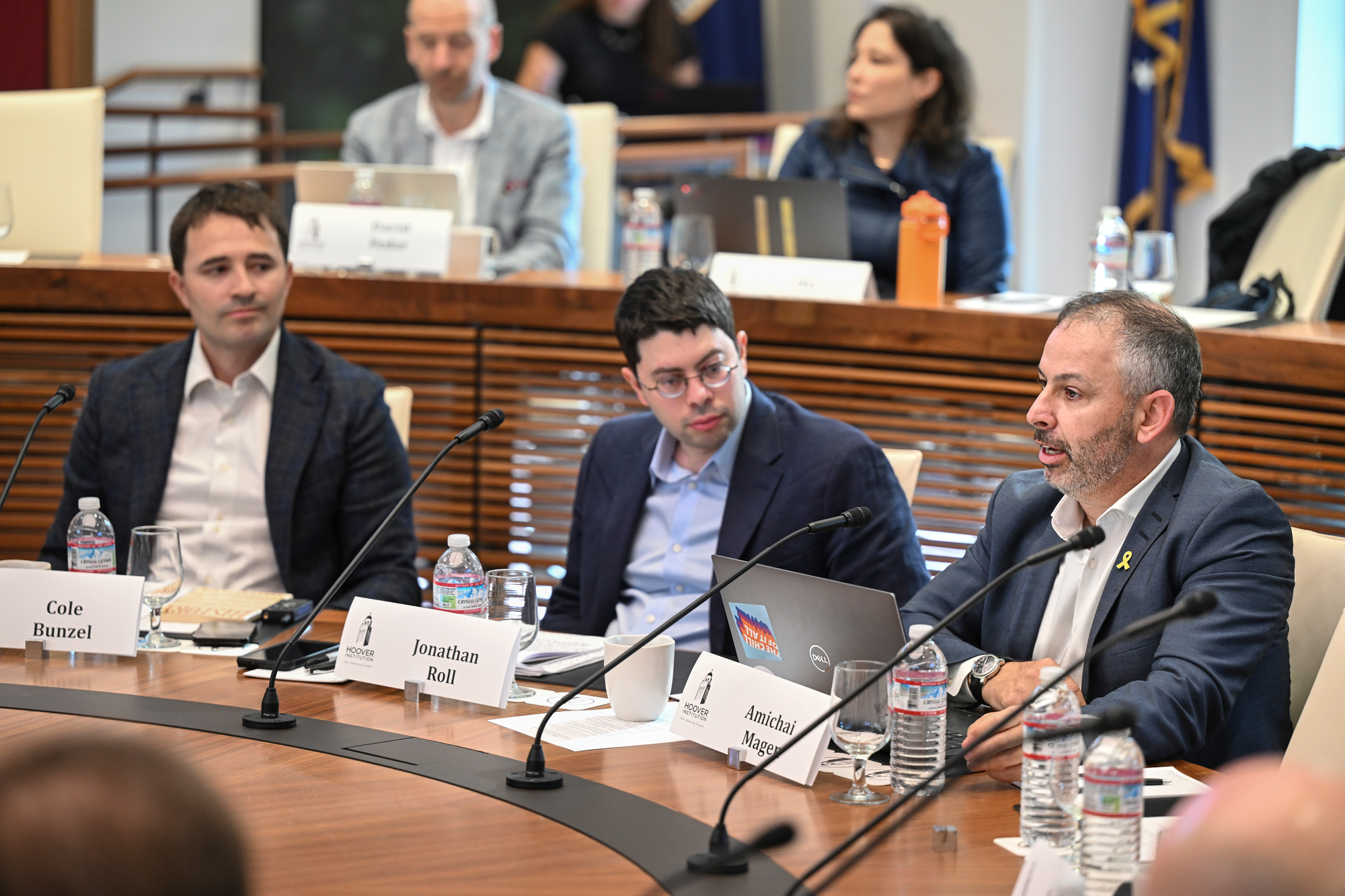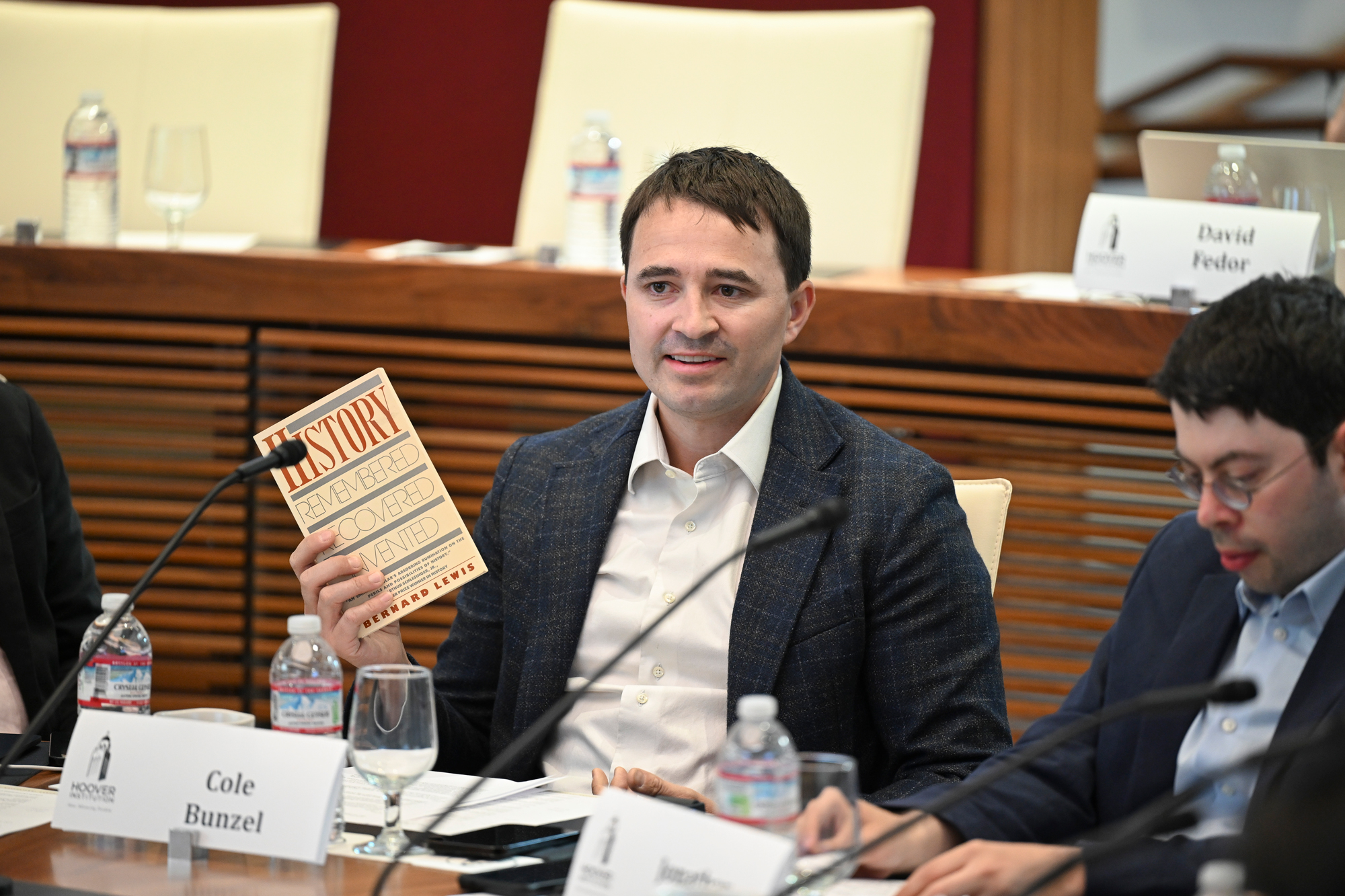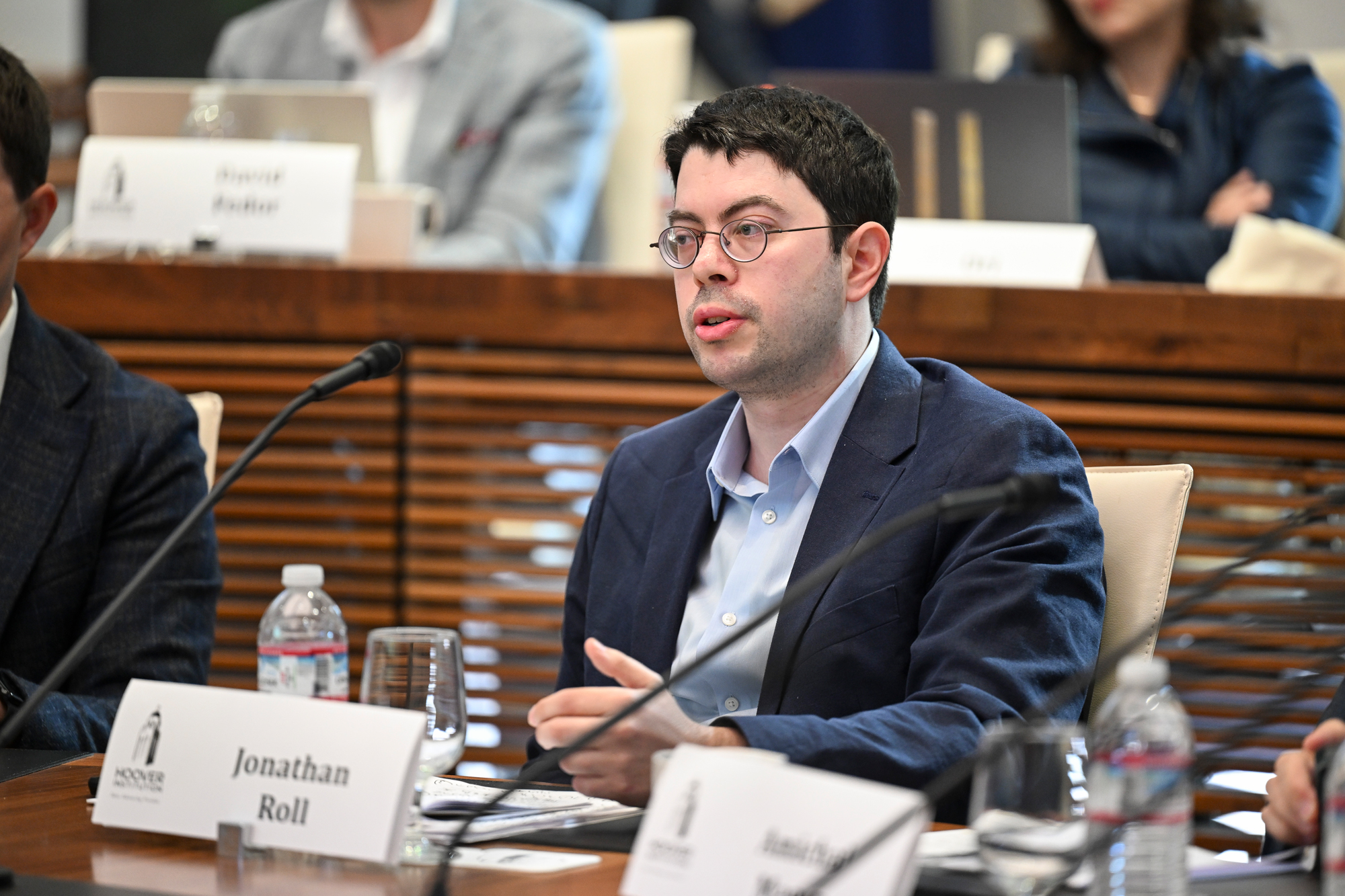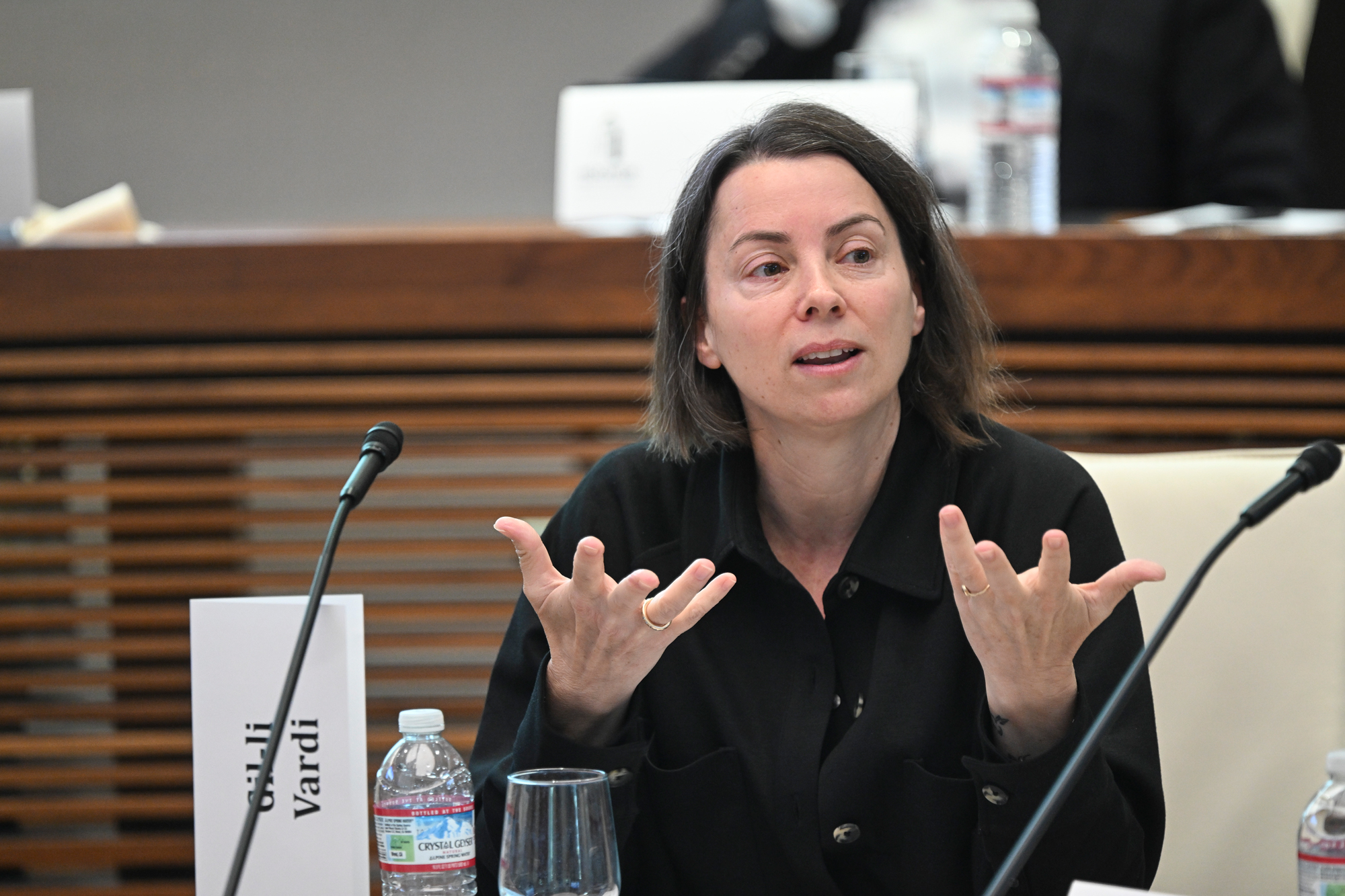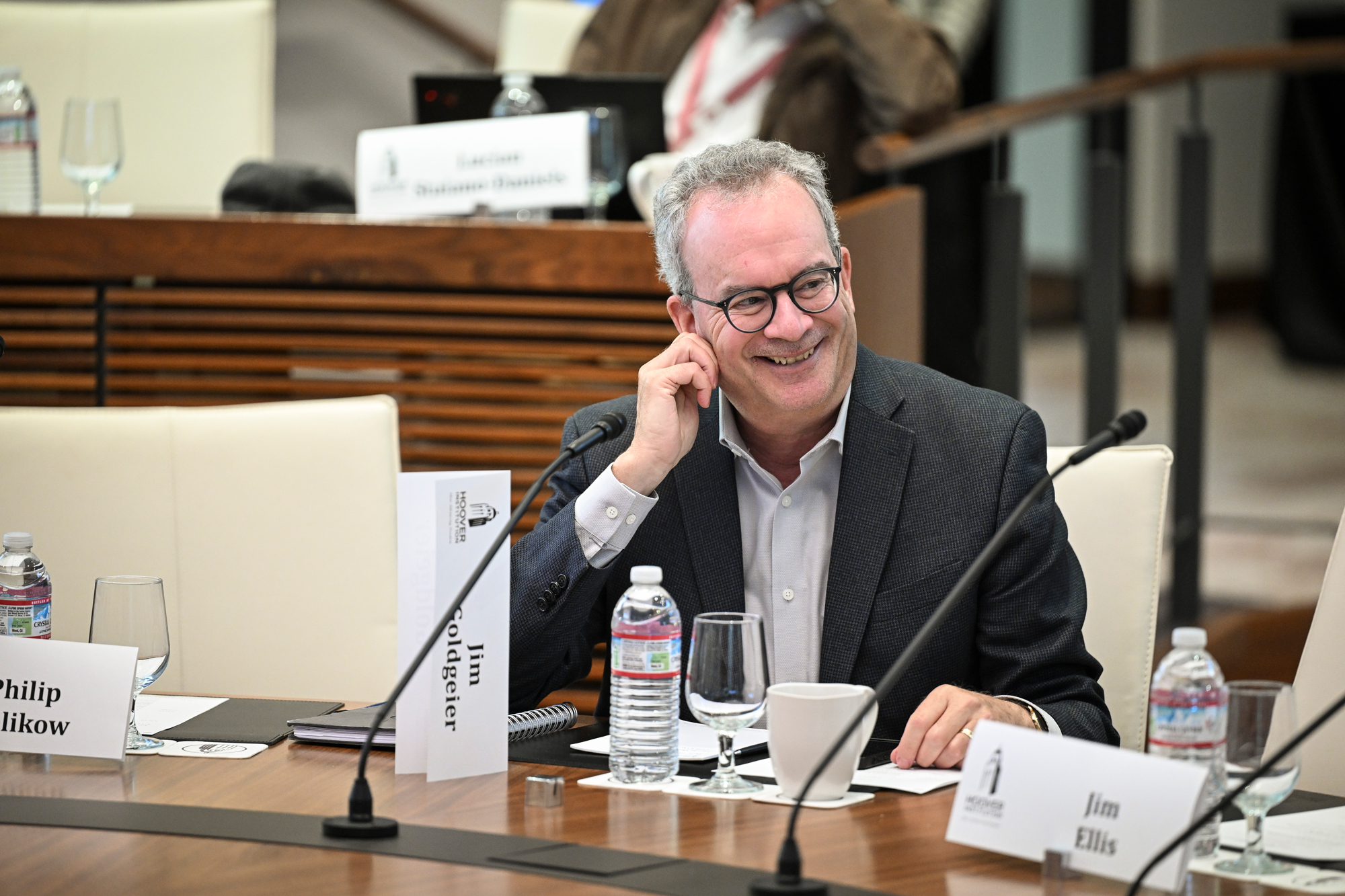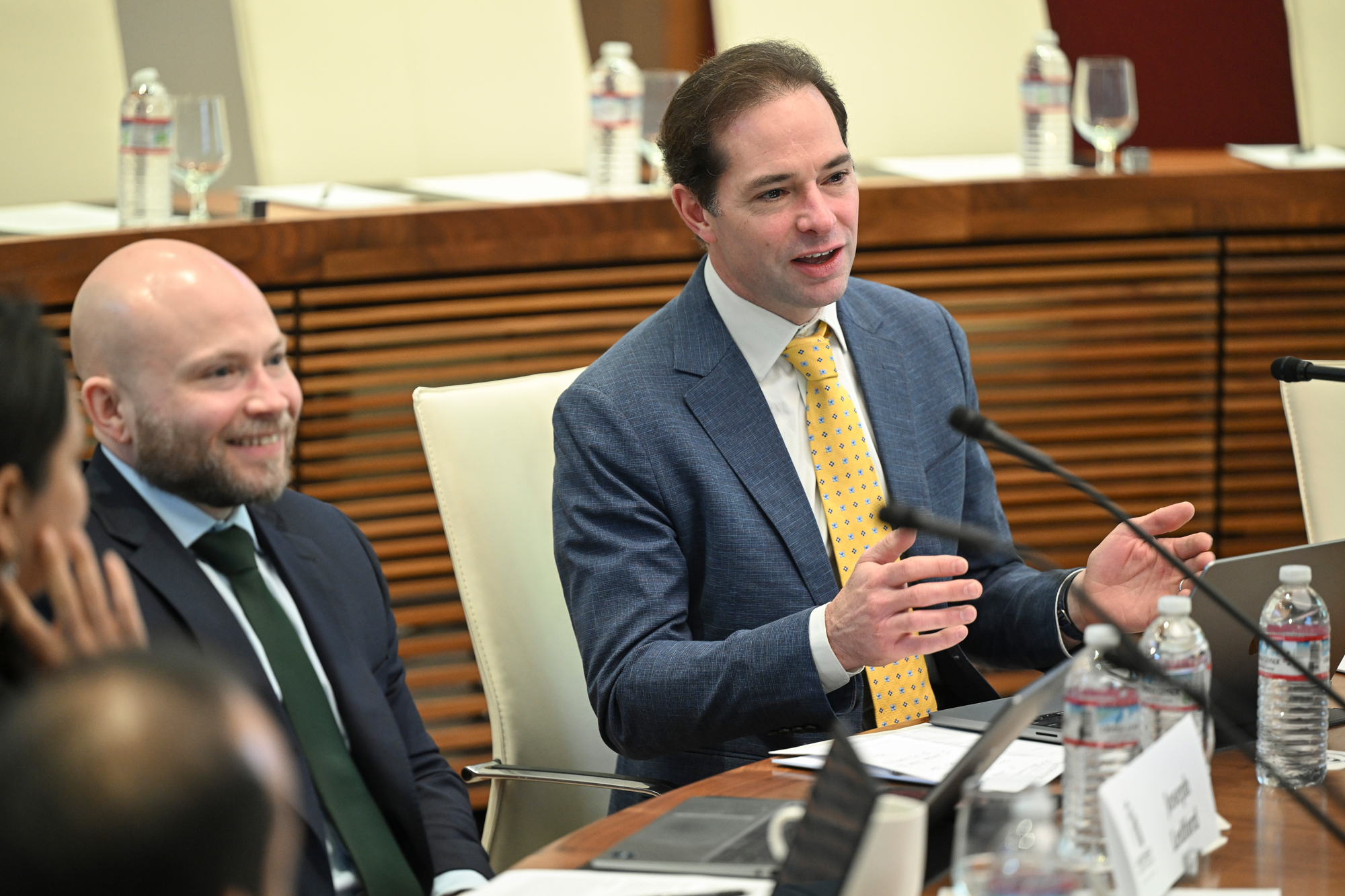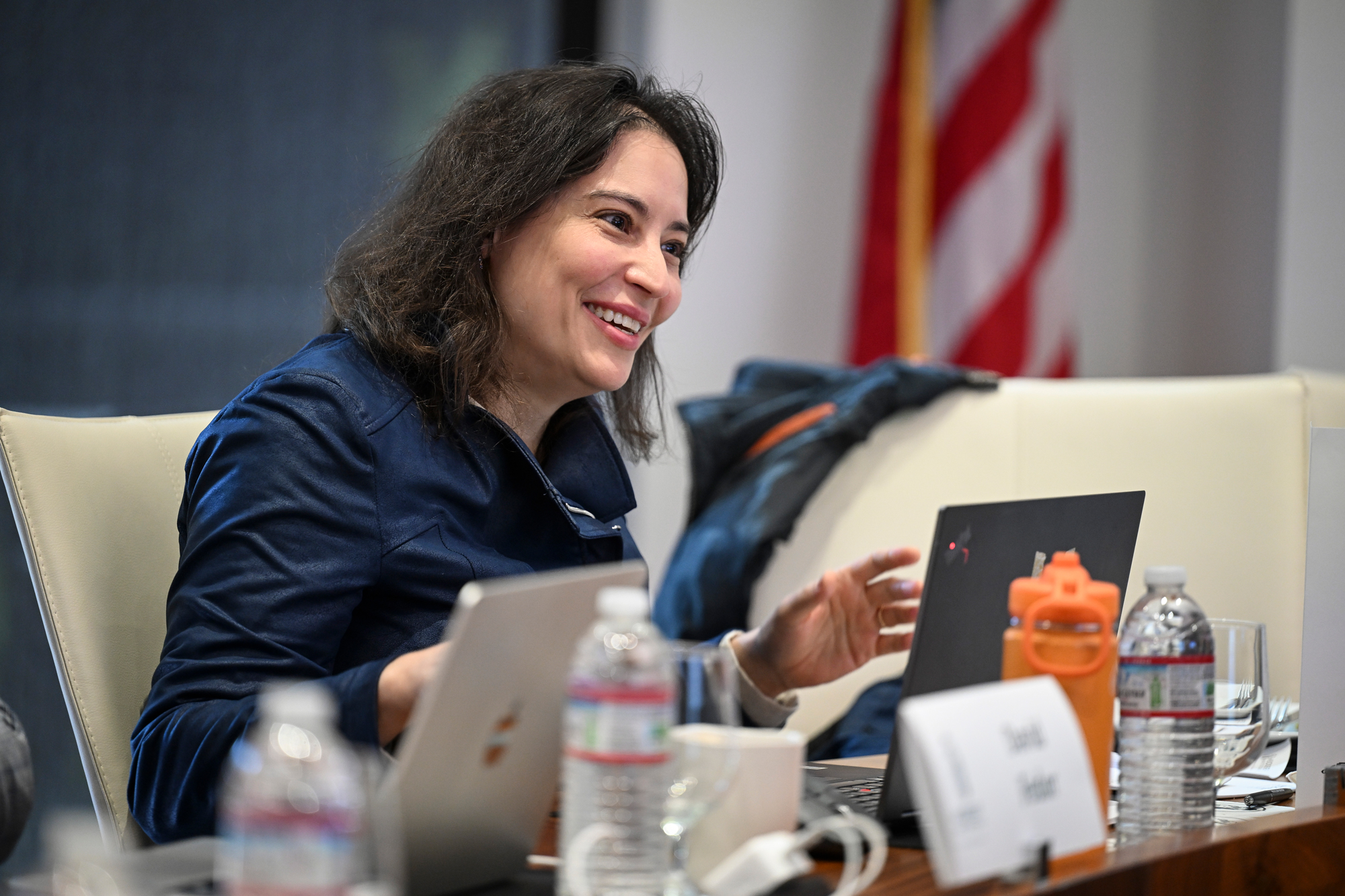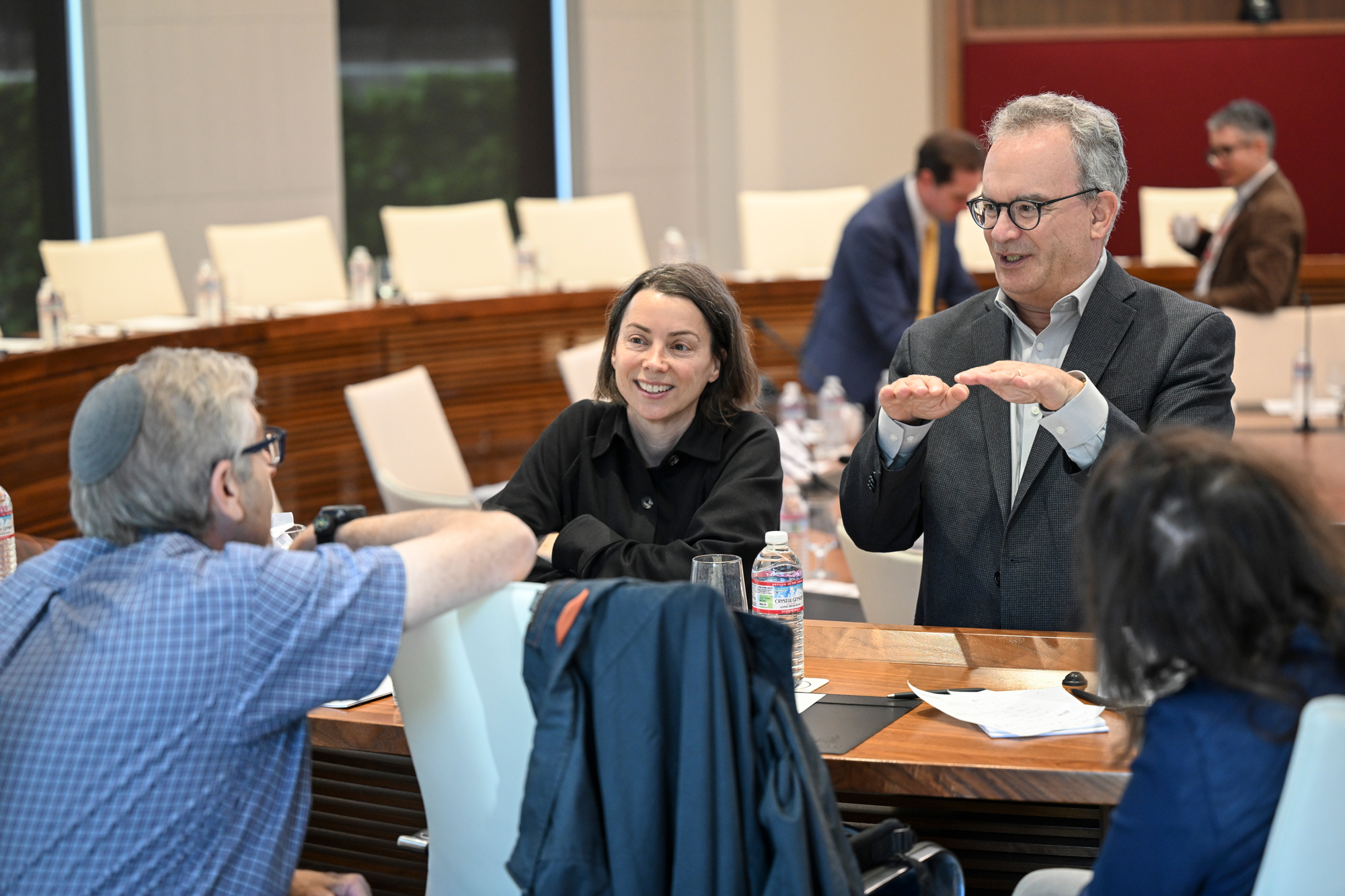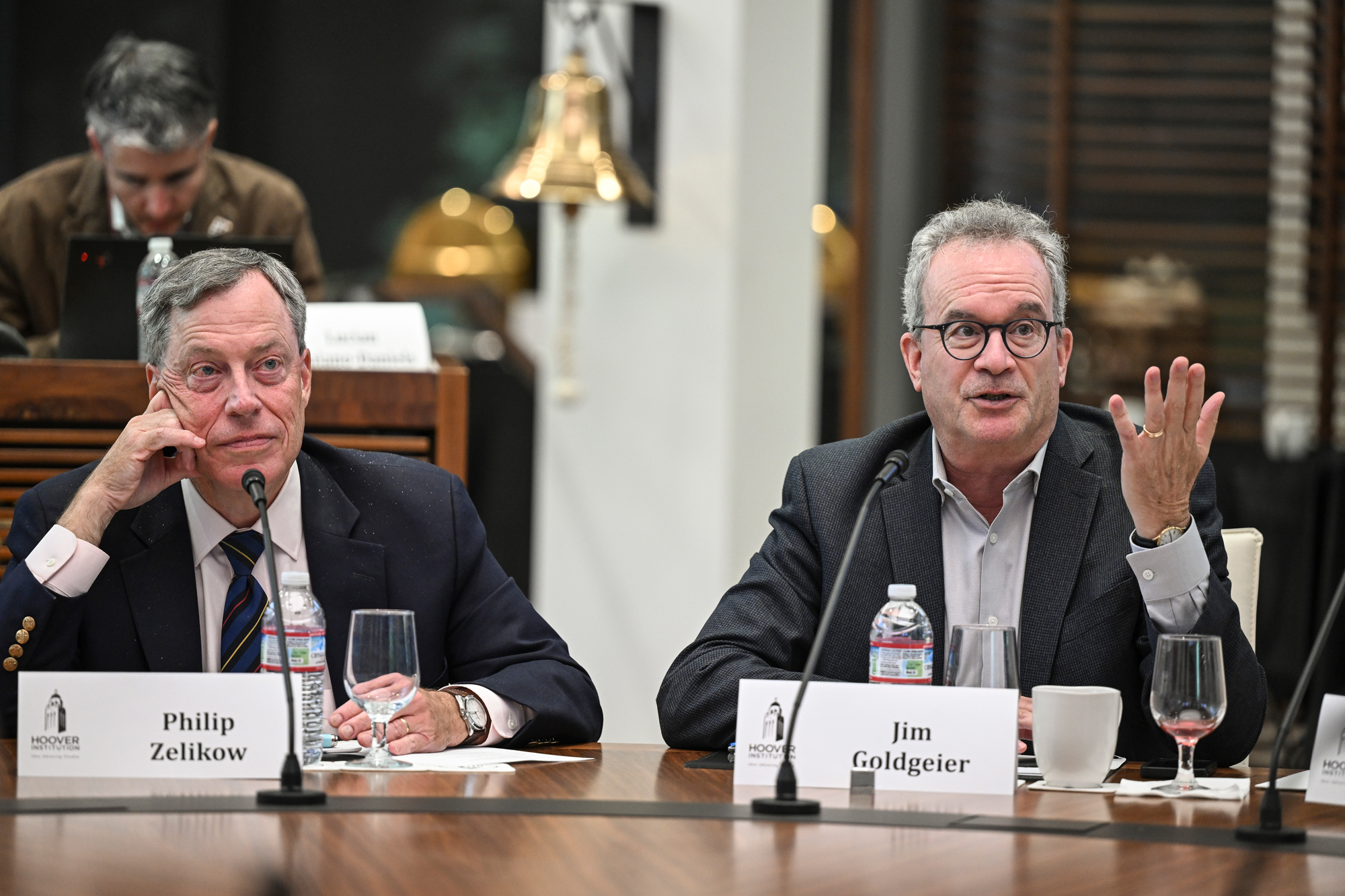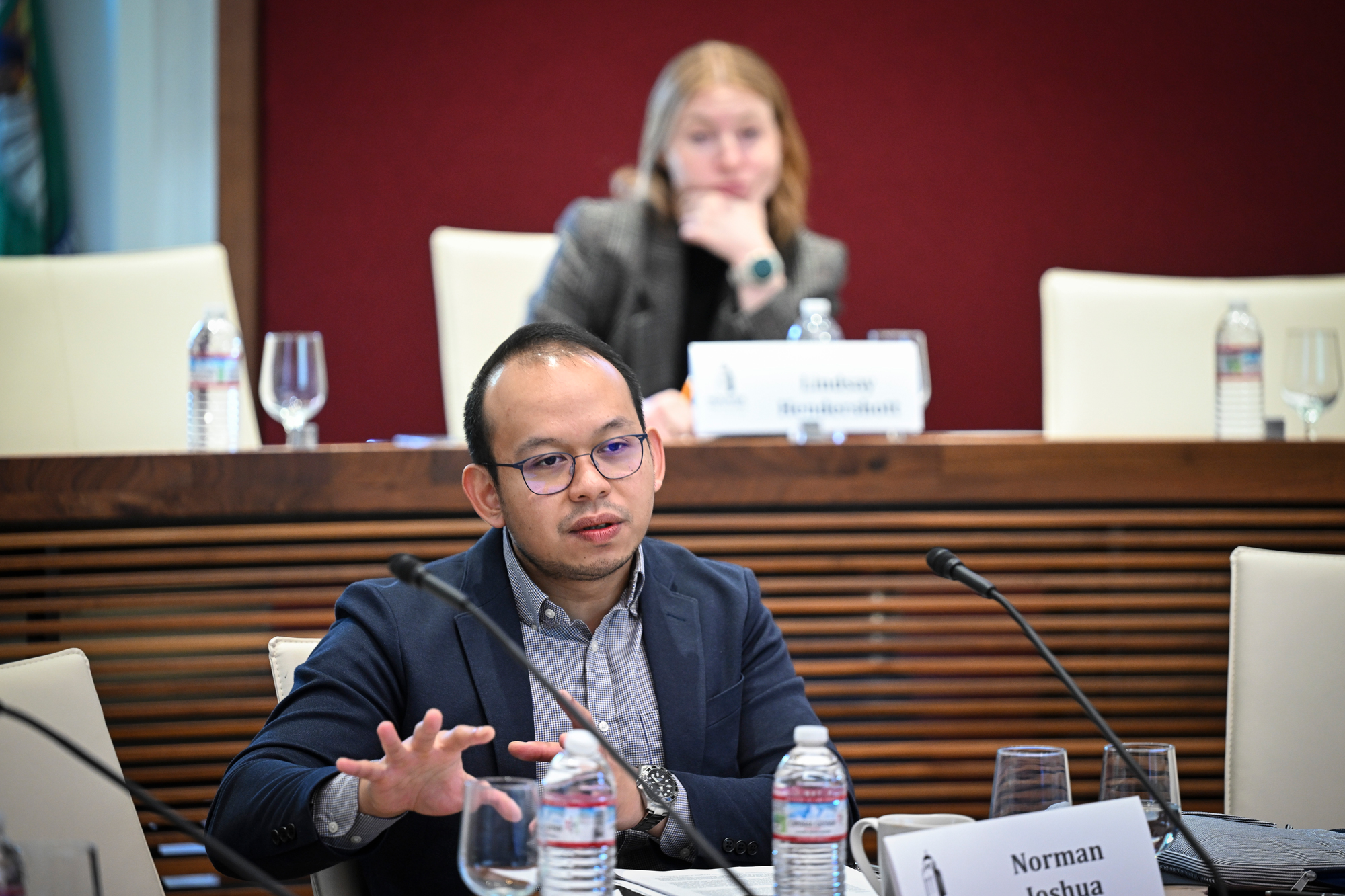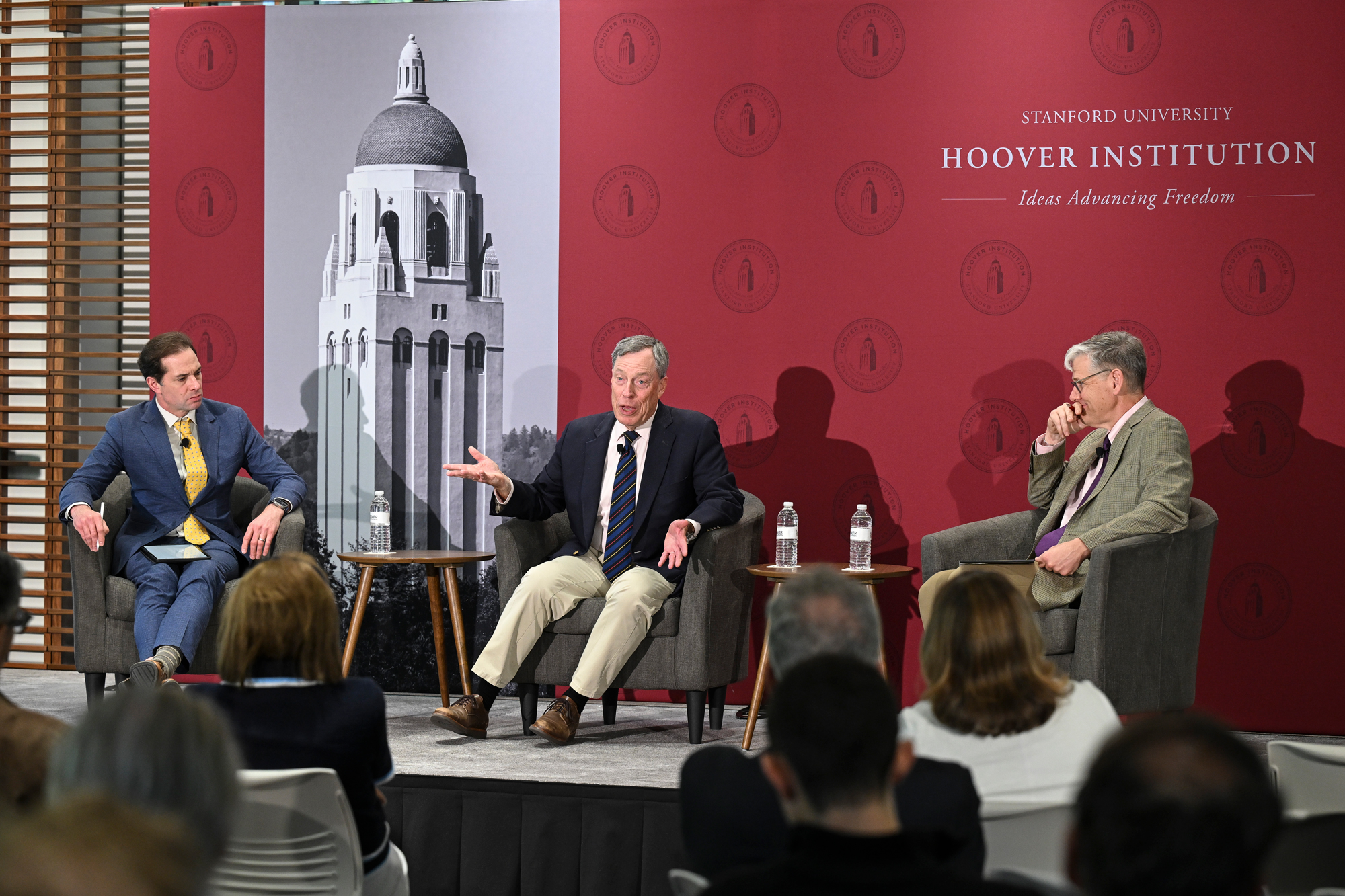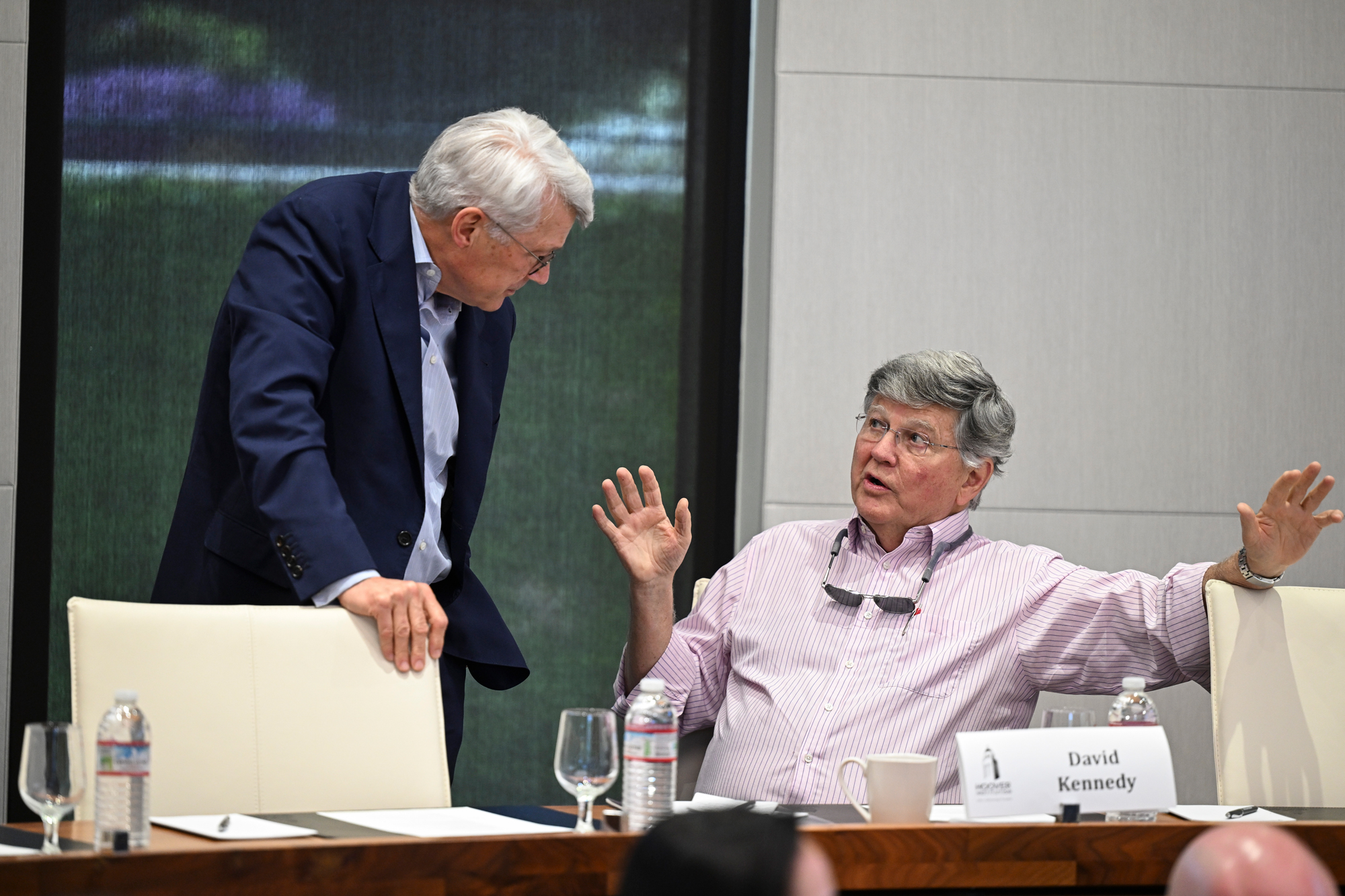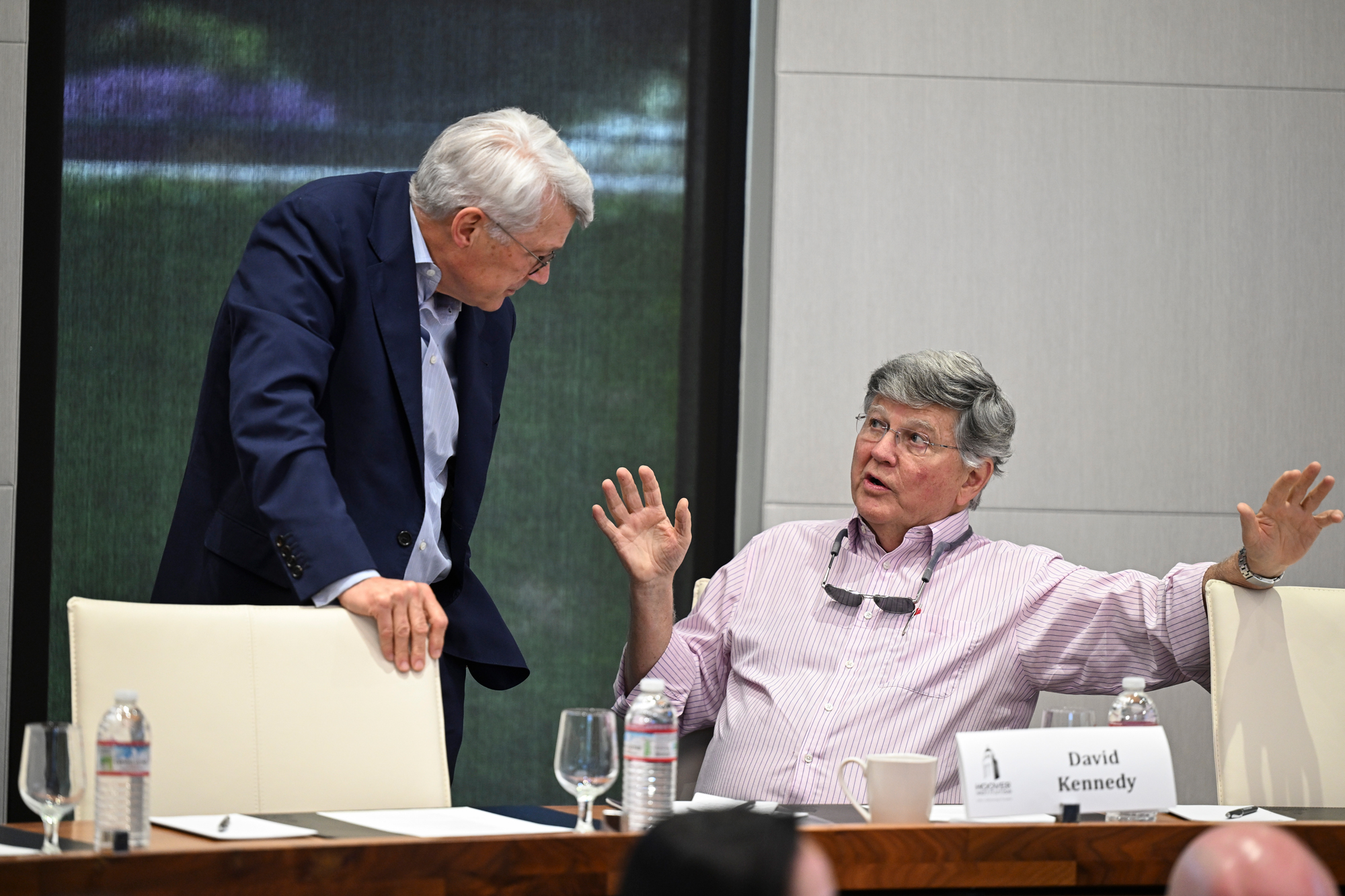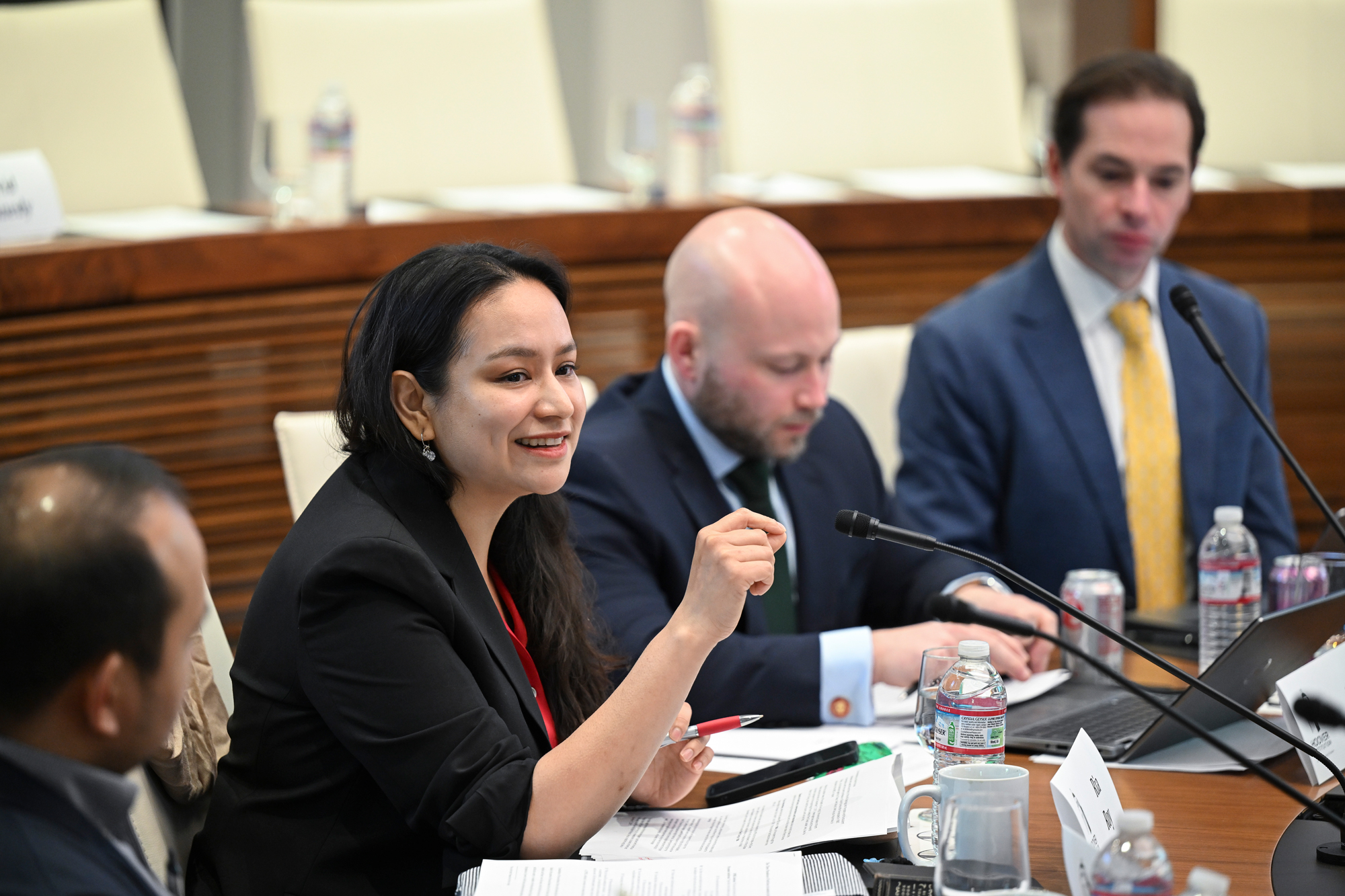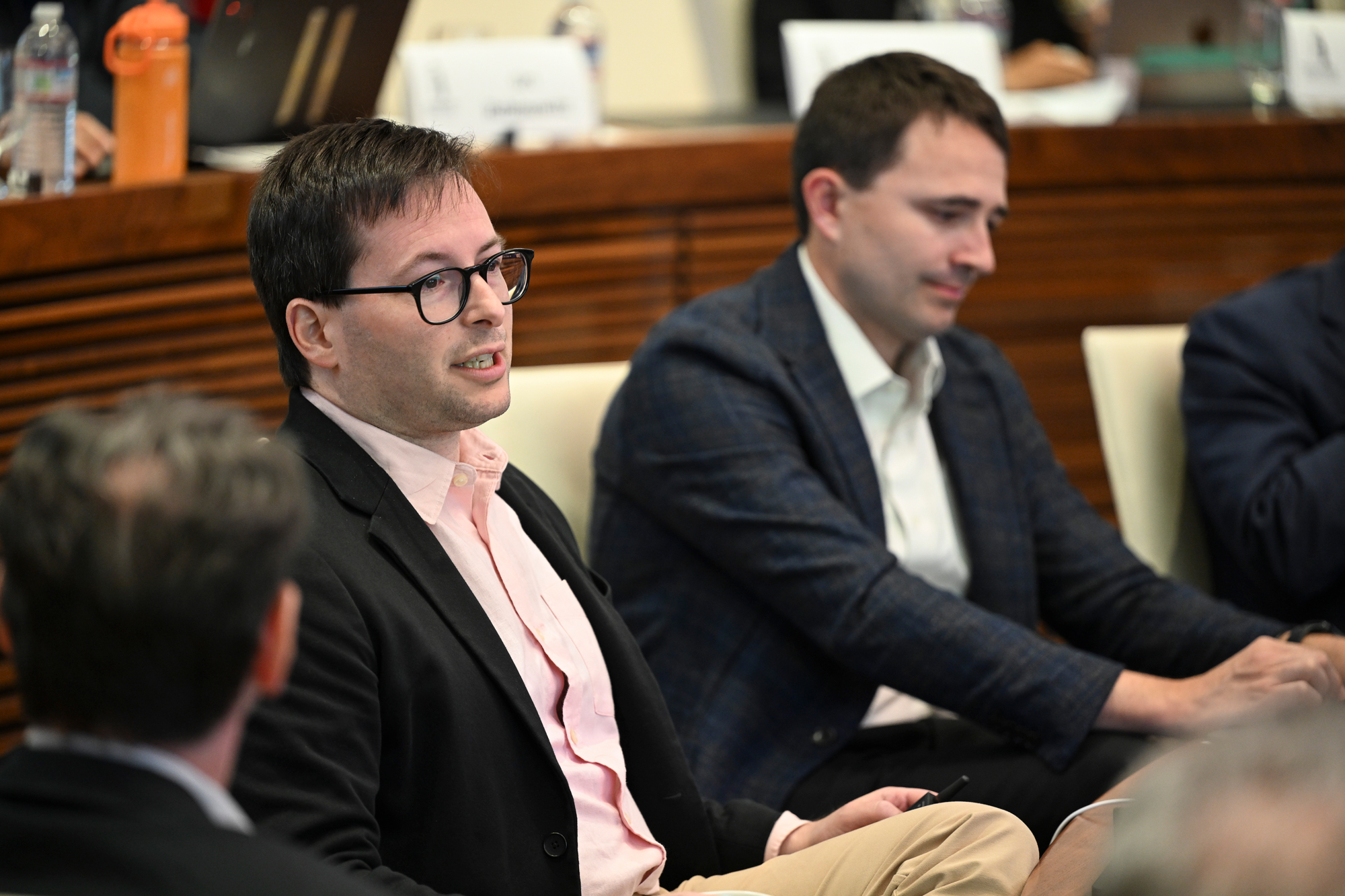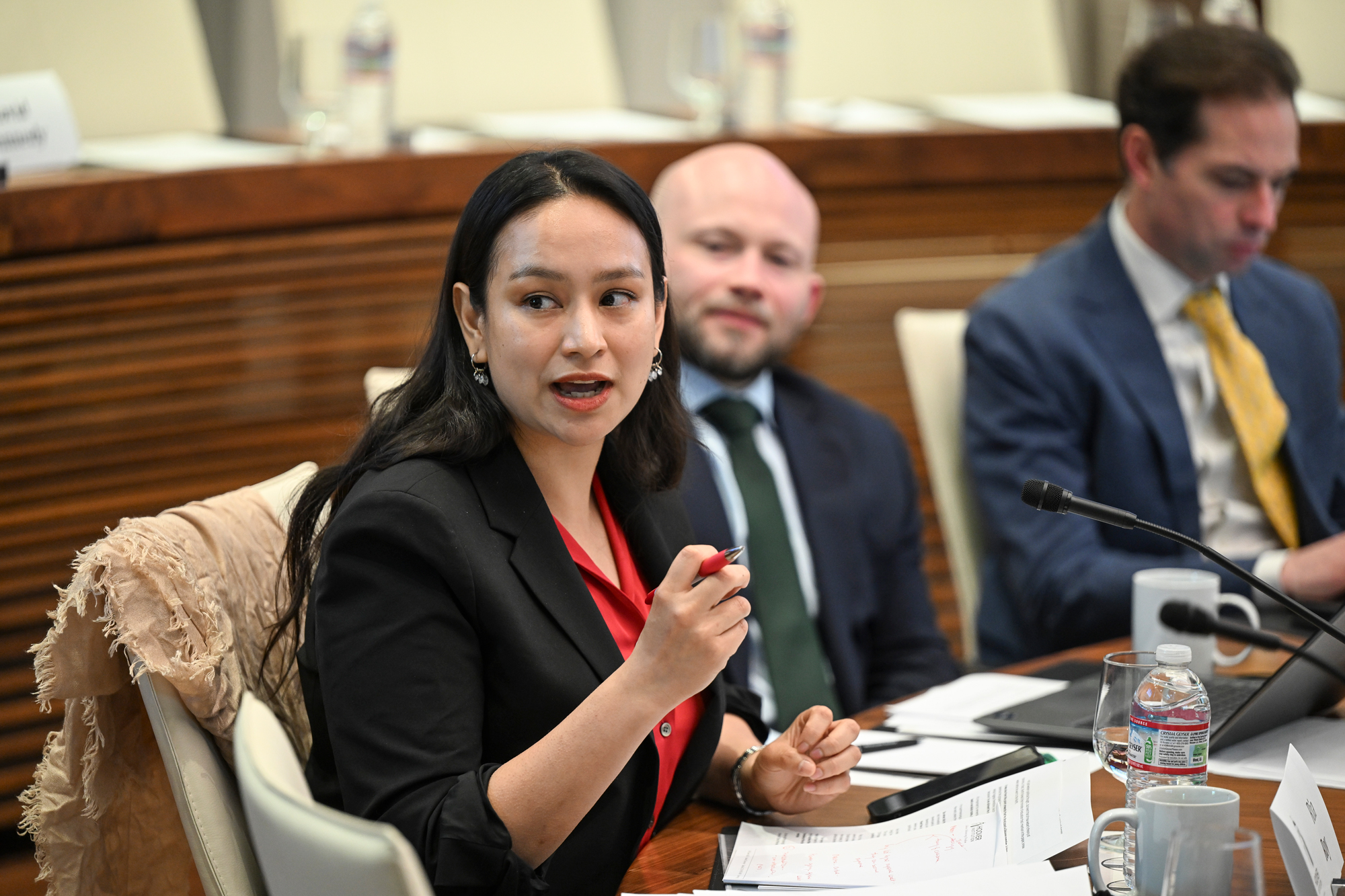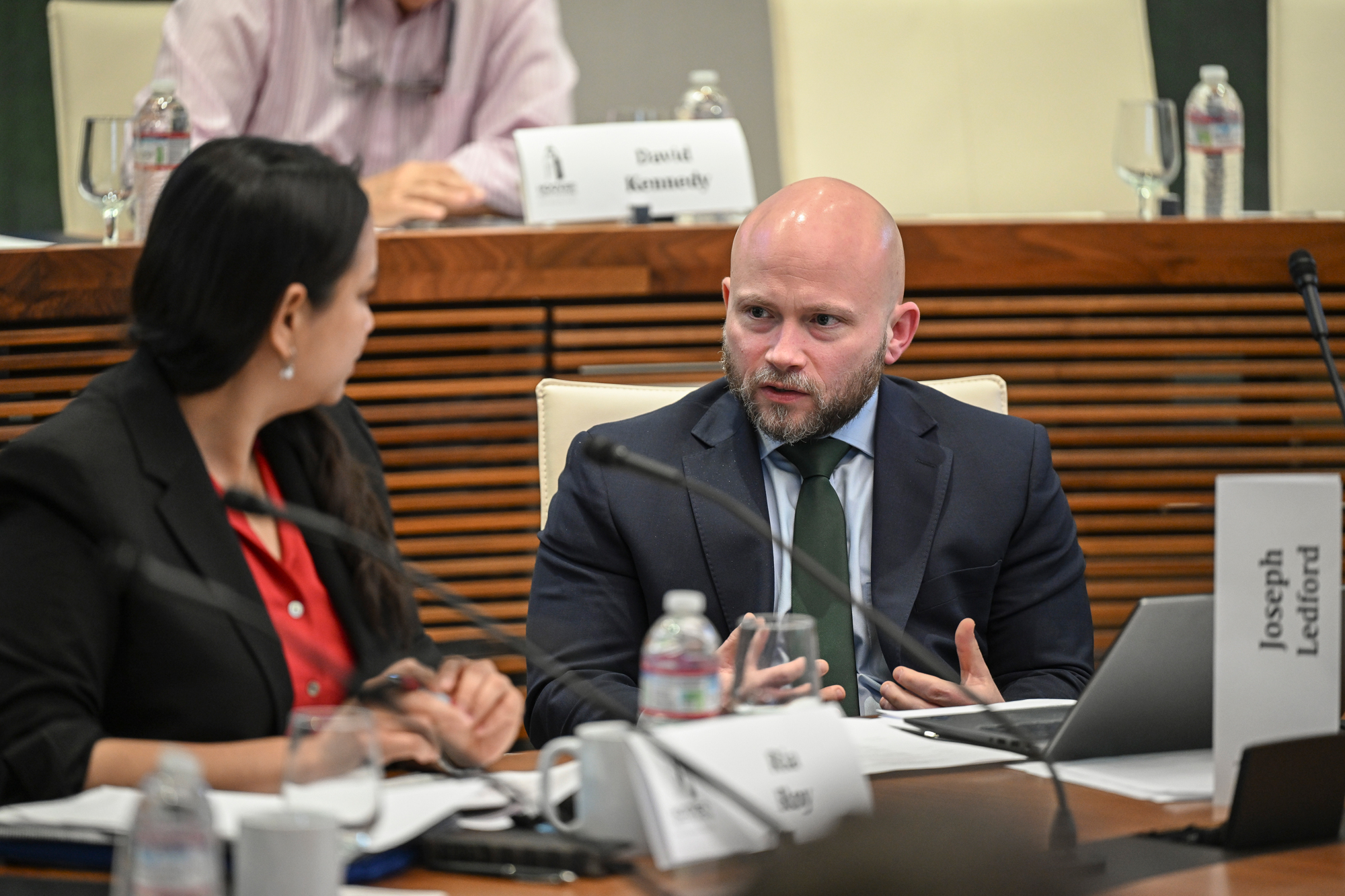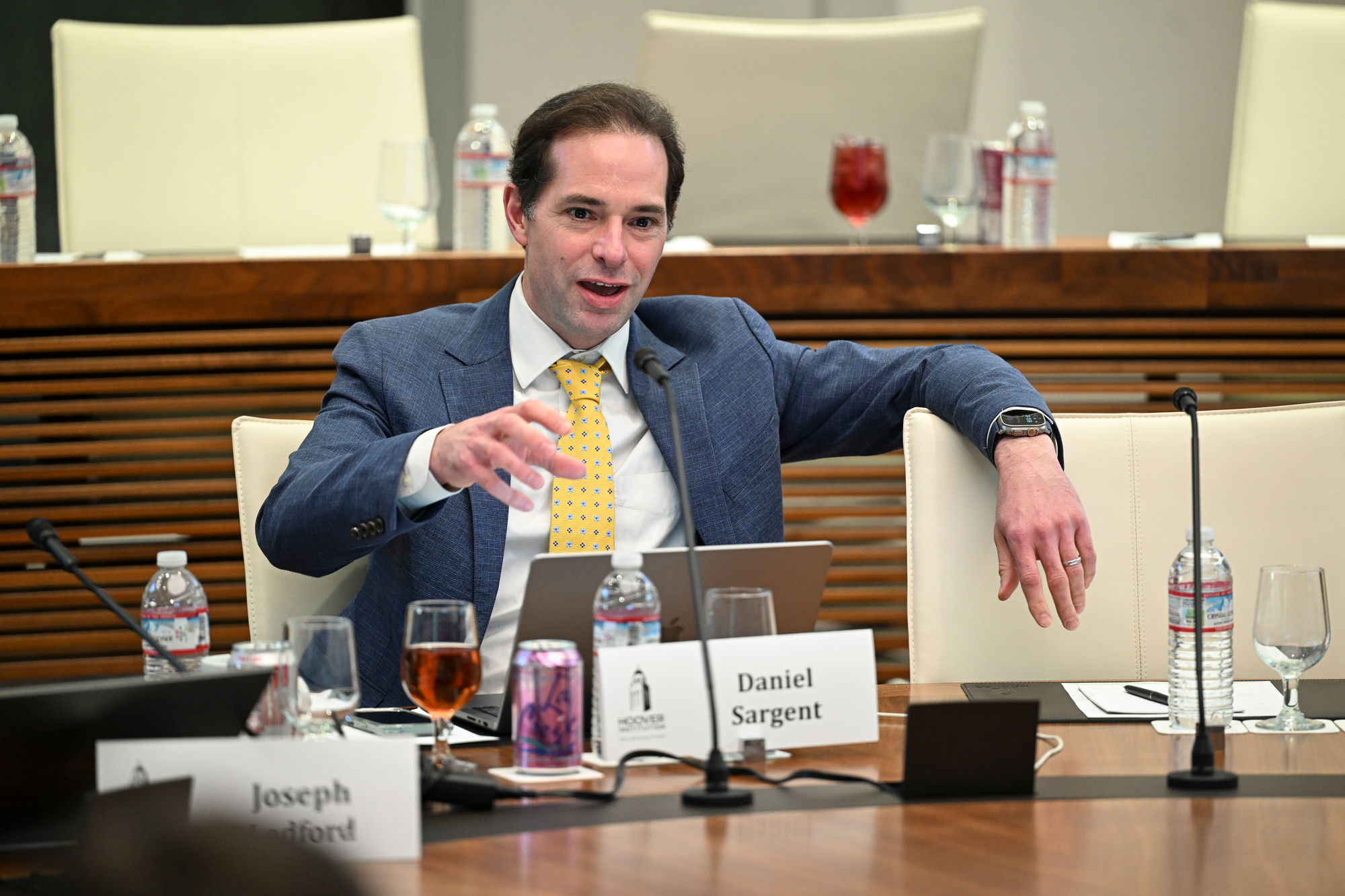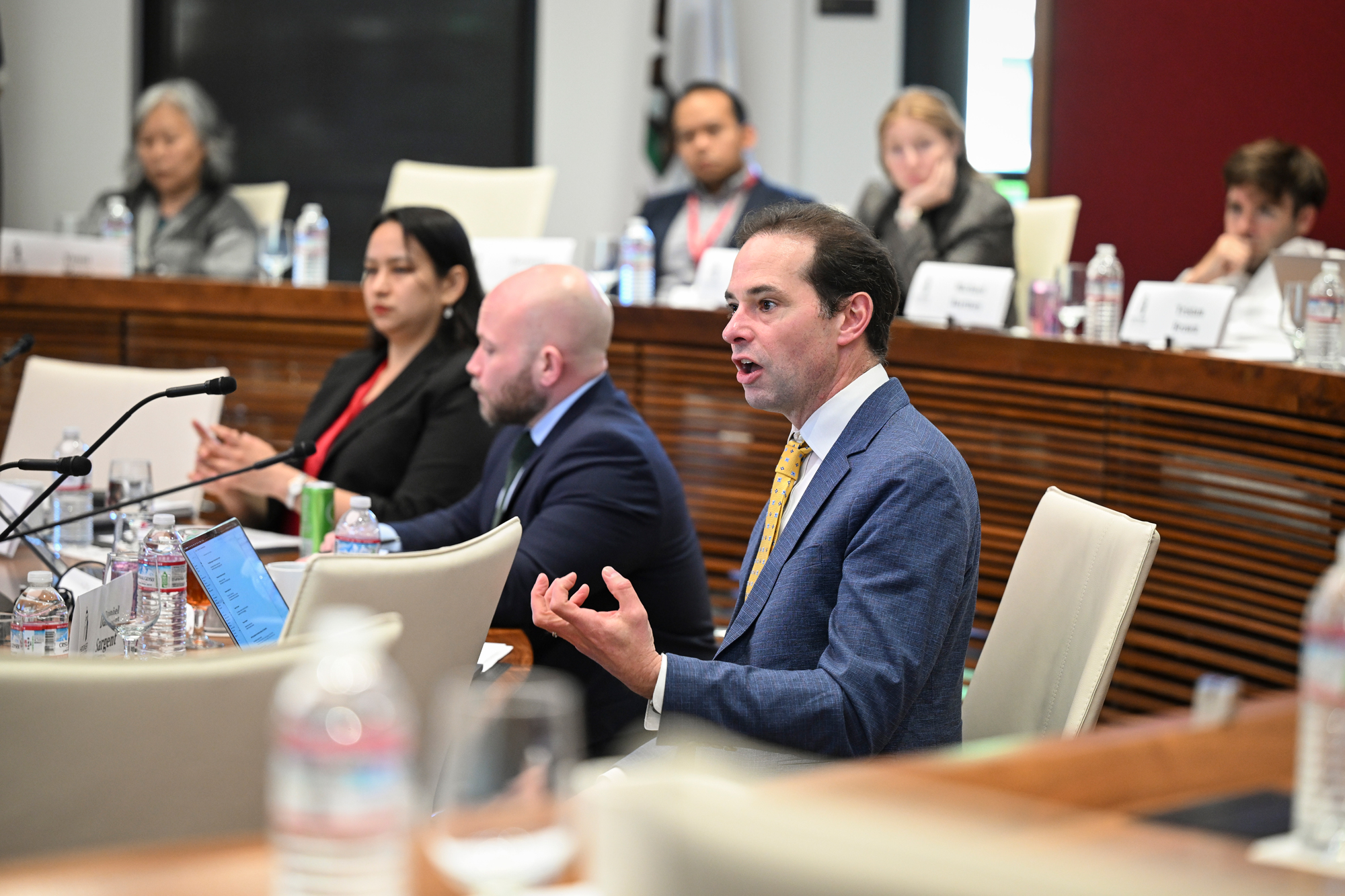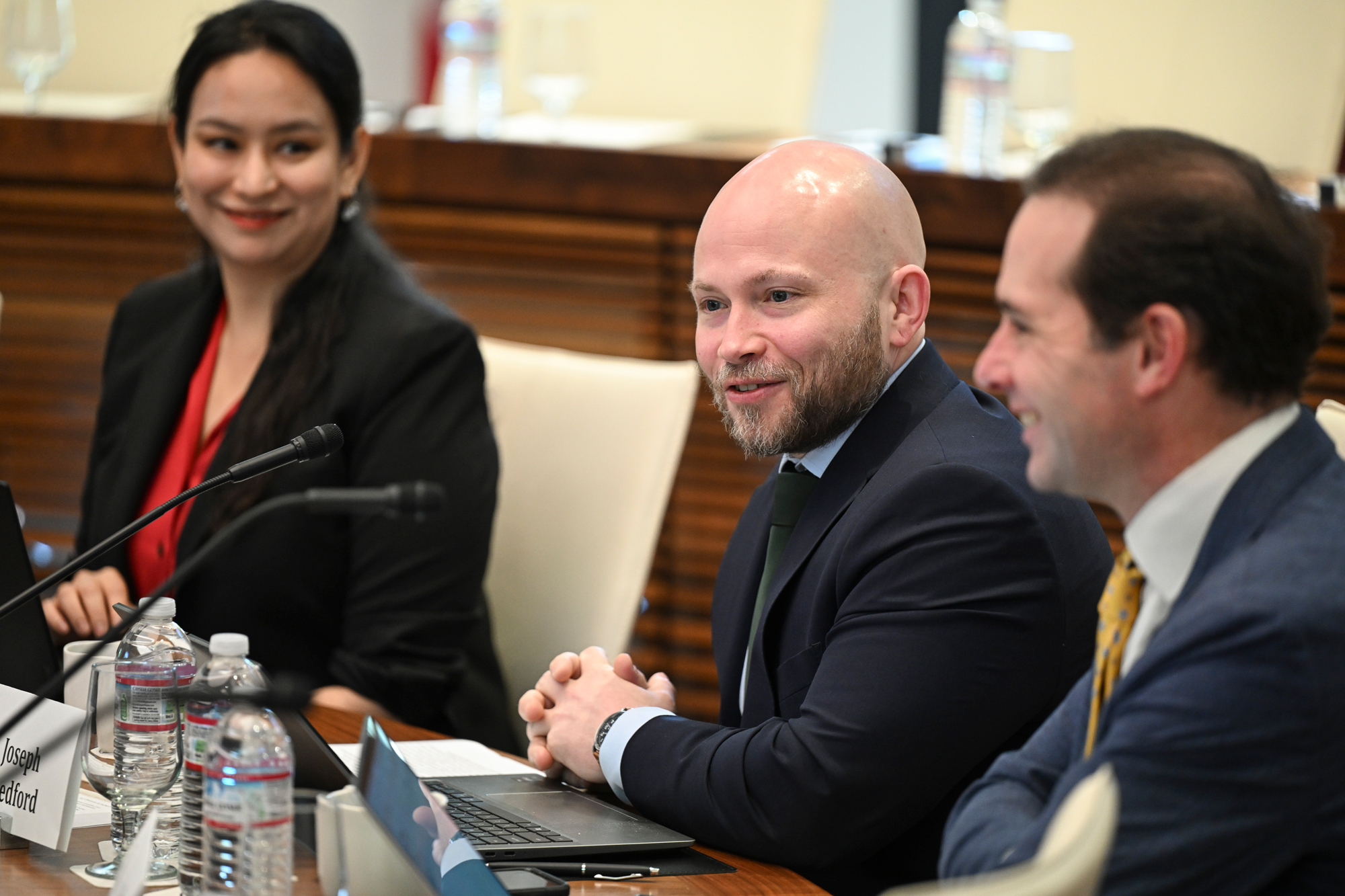
On May 19, 2025, the Hoover History Lab hosted the daylong conference “History & World Order: ‘Lessons’ of the Past for American Statecraft” at the Hoover Institution. Joseph Ledford, a Hoover Fellow and Assistant Director of the Hoover History Lab, organized the conference in collaboration with Daniel Sargent, the Alexander F. and May T. Morrison Professor of American History and American Citizenship at the University of California, Berkeley. The marquee event convened scholars and practitioners to examine how and why history influences the politics and statecraft of seven nations: the United States, Brazil, China, Indonesia, Israel, North Korea, and Saudi Arabia. The conference also included a special keynote discussion on the uses and misuses of history, covered by C-SPAN, featuring Botha-Chan Senior Fellow Philip Zelikow and Drew Erdmann, a partner at McKinsey & Company.
Beliefs about what history suggests, teaches or portends influence the practice of foreign policy, Ledford said in opening remarks, not just in the United States but across the globe. History is ubiquitous in public policy, he observed, and policymakers use history often, but they often use it badly.

Recognizing that history molds one’s perceptions of possibility, necessity, and opportunity, the organizers aimed for the conference to challenge the axiomatic assumptions of policymakers and broaden their historical imagination about the United States and the world. “We are united in our belief,” Ledford told the keynote audience, “that rigorous empirical history, judiciously deployed, can help those engaged in public policy make better decisions.” The day’s proceedings reinforced the Hoover History Lab’s mission of bringing the study of the past to bear on contemporary policy issues.
Alongside them, Ledford and Sargent invited six Hoover Fellows and Research & Teaching Fellows affiliated with the Hoover History Lab to present new research on the uses and misuses of history. Reflecting their broad range of expertise, these talented next-generation scholars produced papers on topics such as the historical axioms informing both Brazilian and Indonesian foreign policy, history’s role in Saudi Arabia’s Vision 2030, the historical lessons underpinning Israeli decision-making, the effect of historical narratives on China’s understanding of artificial intelligence, and history’s influence on North Korea's leadership cult.
During the day’s first panel on Israel and Saudi Arabia, Hoover Fellow Cole Bunzel raised the paradox of using false historical narratives for the purpose of pragmatic policy. He detailed how the 2022 establishment of Founding Day in Saudi Arabia promotes a revisionist history, unsupported by historical evidence, to minimize Wahhabism in support of Crown Prince Mohammed bin Salman's modernization agenda. Similarly, Jonathan Roll, the Barry and Teri Volpert Family Postdoctoral Fellow, explored why Israeli decision-makers rely on overly-simplified historical analogies that emphasize failure, rather than those derived from successful diplomatic episodes, when dealing with the Gaza Strip, sparking a lively debate.
The second panel considered the impact of axioms on Brazil and Indonesia. Research & Teaching Fellow Dian Zhong argued that Brazilian statecraft can be explained by the axioms “country of the future," "autonomous development," and "Third Way," each underpinning the logic of Brazilian policy. Research & Teaching Fellow Norman Joshua focused on the historical thinking driving Indonesia’s recalibration toward a posture of strategic autonomy, in which President Prabowo Subianto’s draws on the country's durable historical patterns of non-alignment, sovereignty, and global ambition, rooted in the country's colonial and post-colonial periods. Although not necessarily resulting in the best outcomes, participants debated the merits and pitfalls of such enduring axioms for each country.
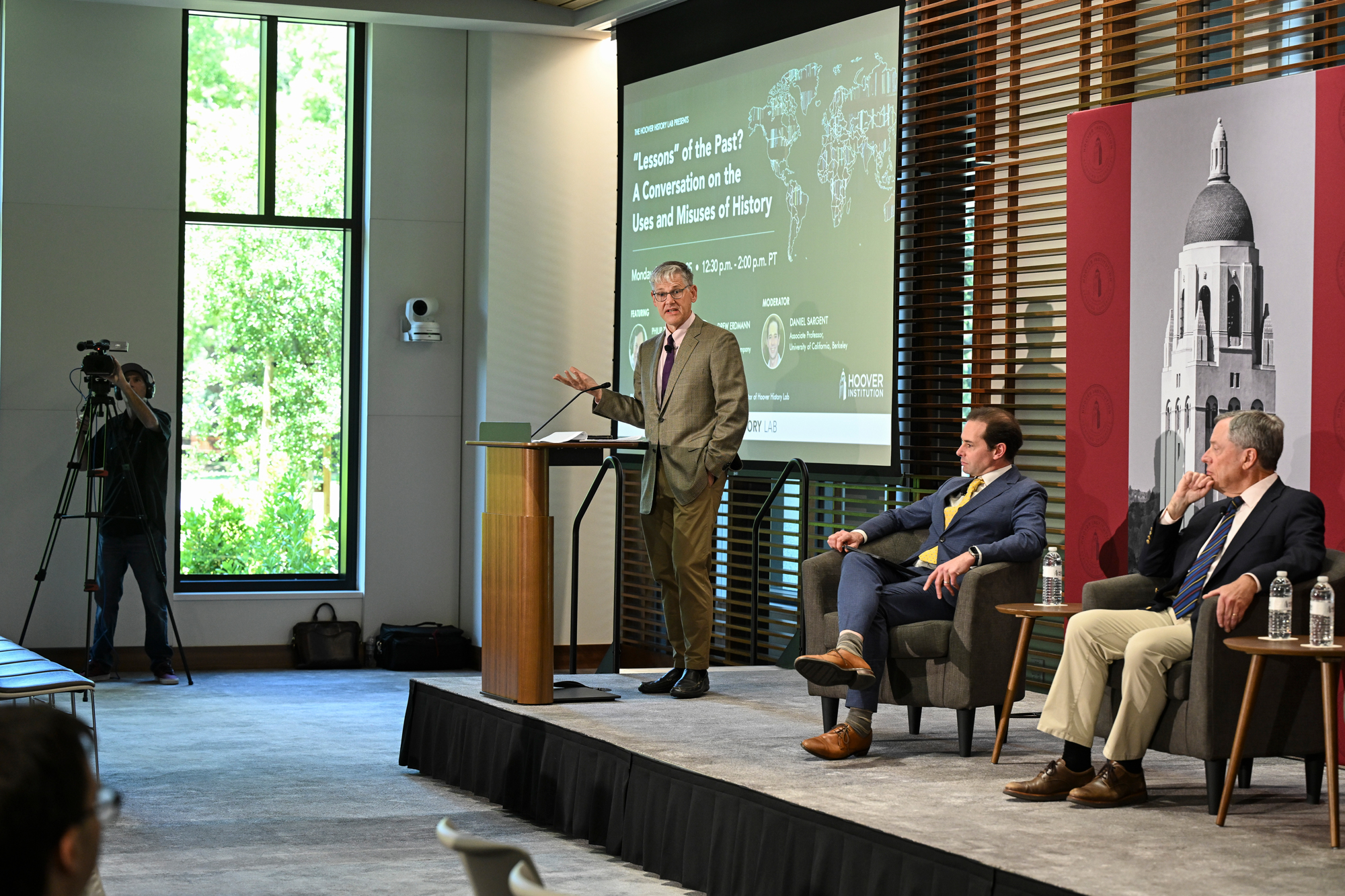
Moderated by Sargent, the early afternoon keynote conversation between Philip Zelikow and Drew Erdmann was a standout moment, attracting an overflow audience in the Shultz Auditorium. The conversation was framed around the legacy of historian Ernest May, who pioneered the practice of applied history. Erdmann, May's former student and biographer, set the stage for the conversation with an evocative account of May's background and influence. Zelikow, May’s collaborator, opened the discussion by stressing the distinct value in the direct and indirect knowledge that history provides. We learn from history, Zelikow instructed the audience, either directly through understanding the backstory of individuals, institutions, and issues or indirectly from using analogies to infer potential solutions to problems. The process, he noted, is “like learning about life” from direct experience and vicarious experience.
Drawing on their unique backgrounds in academia, government, and private industry, Zelikow and Erdmann covered a host of topics related to the application of history reasoning, including the risks of flawed historical narratives, the limits of probabilistic methods in policymaking, history's power to challenge assumptions, the proper use of historical analogies, and the risks of axiomatic thinking. Their full conversation is available here.
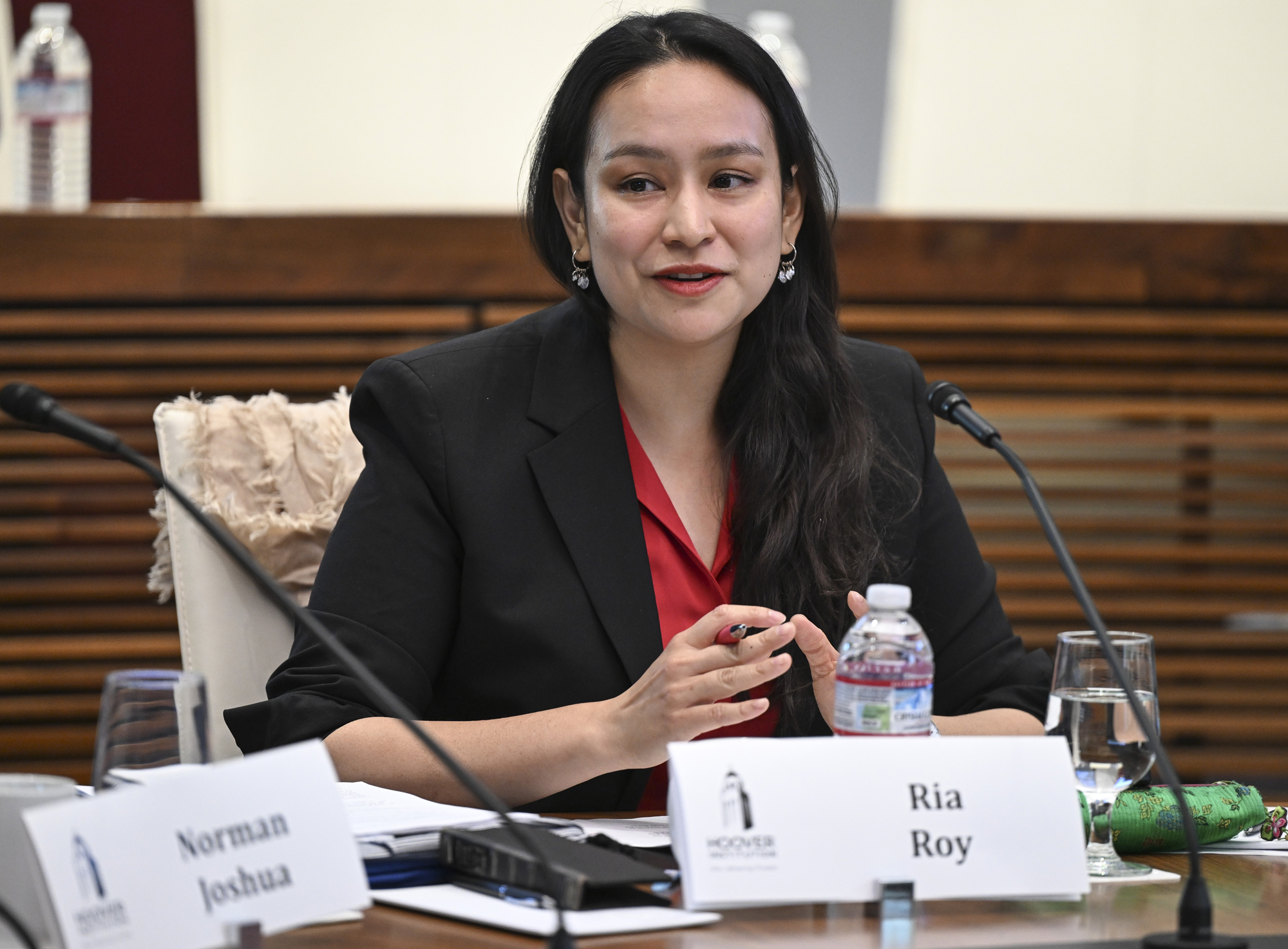
After the keynote, Kleinheinz Fellow Ria Roy and Hoover Fellow Matthew Lowenstein turned the attendees’ attention toward East Asia, discussing how history informs the politics and policies of North Korea and China. Roy challenged the simplistic view of North Korea as a “one-man show,” presenting on how history shaped both the North Korean leadership and the country's elite intellectuals drive for political legitimacy, revealing that not only the Soviet experience but also the work of Max Weber held analytical purchase. In examining China’s adaptation to technological change, Lowenstein contended that China's techno-optimism arises from a belief in technology’s key part in national strength and a fear of technological backwardness, which stems from the historical memory of the “century of humiliation” (1839-1945), leading to diminished efforts to regulate Artificial Superintelligence.
The event culminated in a panel on the United States from Sargent and Ledford. In an incisive presentation, Sargent dissected how three modes of historical reasoning—national narrative, transhistorical assertion, and historical calculation—influences the way policymakers conceive of U.S. foreign policy as well as America's relationship to global order. Ledford followed with a sweeping examination of how the Monroe Doctrine serves as a persistent yet contested framework for Western Hemisphere policy. He traced interpretations of the doctrine over the last 200 years, from defensive creed and expansionist rationale to the Good Neighbor Policy and Cold War interventions, arguing that the doctrine’s defensive principles remain valuable for strategic guidance.
The conference proceedings will be released next year in an edited volume. In late spring 2026, the Hoover Institution Press will publish History’s Dead-Hand Grip: Politics, Statecraft, and “Lessons” of the Past.







